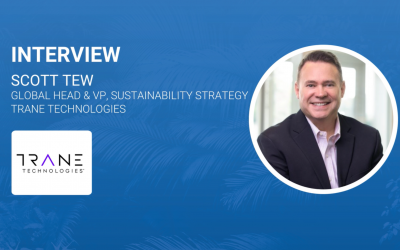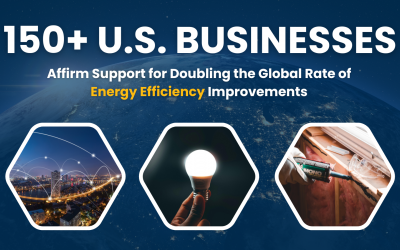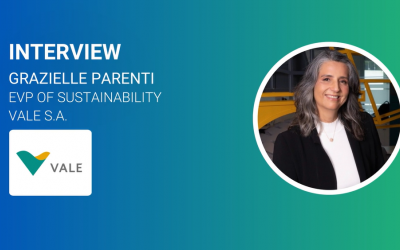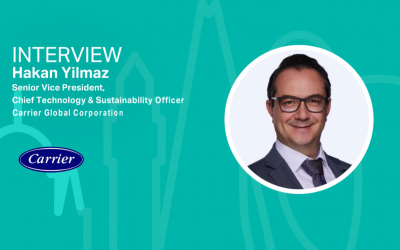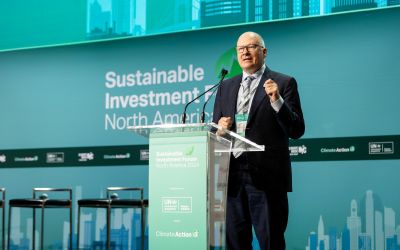Audun Sommerli Time discusses a new clean alternative to fossil fuels
At last month`s Climate Summit (COP24) in Katowice, Poland, the Scandinavian clean tech company, NextFuel AB, presented what they call the world`s first CO2 negative fuel. Climate Action spoke briefly to the company’s Chief Marketing Officer, Audun Sommerli Time, about the new technology and their plans going forward.
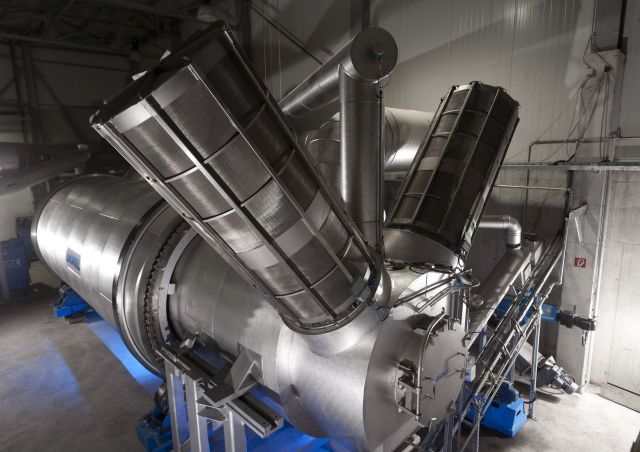
At last month`s Climate Summit (COP24) in Katowice, Poland, the Scandinavian clean tech company, NextFuel AB, presented what they call the world`s first CO2 negative fuel. Climate Action spoke briefly to the company’s Chief Marketing Officer, Audun Sommerli Time, about the new technology and their plans going forward.
What is NextFuel?
NextFuel is the world`s first CO2 negative fuel. NextFuel is made of fast growing energy crops like elephant grass or bagasse grown on marginal land unsuitable for food production. After the grass is harvested we dry it, and feed it into our patented reactor. In less than 30 minutes, we have produced the clean NextFuel briquette.
NextFuel has an energy content close to coal, is cheaper than fossil fuels in most markets, and is possible to use directly in today’s energy infrastructure. For instance a coal plant can directly replace some, or all its, coal with our cheap and clean alternative without any changes to its plant.
How is NextFuel a CO2 negative fuel?
If you look at our entire carbon cycle on a one year timeline, we capture more CO2 from the atmosphere the grass is growing, than what is released when the NextFuel briquette is burned.
The reason is that when the grass is growing, around 20% of the CO2 that is absorbed from the atmosphere is stored in its roots below the ground.
When the NextFuel briquette is burned, it only released the rest of the CO2 (around 80%) that was captured from the atmosphere only months before. Not decades ago like wood pellets or millions of years ago like fossil fuels. So our carbon cycle is much faster those other burnable alternatives and we also keep some of the carbon in the soil. From year 1 to year 2 we therefore reduce the CO2 in the atmosphere for each completed cycle, making this the world’s first commercially viable CO2 negative fuel. Our estimates in our first project show a 105% CO2 reduction compared to the coal they use today, even when we include the energy we use in our own production process.
What are your plans going forward?
NextFuel is ready for market today. The technology has been developed and tested by us, and our consortium partners for several years. We even have a first factory in operation in Austria. Going forward our plans are to implement the first large commercial projects in East Africa and South America. These projects could be the perfect show case projects for our technology. Our long term plans are to work together with existing industrial or energy companies through joint ventures or licensing agreement. In this way we can scale very fast and make a real impact in terms of counter global warming.
What industries are you targeting?
NextFuel is a profitable and cost efficient alternative to industries that rely on coal, heating oil or charcoal. We can replace coal directly in a coal plant, a cement plant or a steel plant. For industries using heating oil they only need to replace burners, to use our fuel instead. NextFuel can also be used as a clean back up alternative for wind and solar, when there is no wind or sun. In the long run we might even replace charcoal as this is a dangerous health risk in developing countries.
What response did NextFuel get on the new technology at COP24 and the Sustainable Innovation Forum?
The feedback has been very good, both from politicians and possible business partners. Especially after the bleak IPCC climate report, there seems to be a need for a new solution that can make it possible to reach the 1.5 degree target faster than what is the case with our current trajectory. With NextFuel we have a new alternative to fossil fuels that many see as the fastest and cheapest way to counter global warming. The people we met at the conference were all very interested to see how we will progress going forward, and wish us the best of luck with the implementation of our business case. 2019 is going to be an exciting year.
Visit NextFuel's website here.

